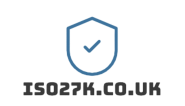Pros&Cons
for evaluating the benefits of ISO 27001 certification for your business:
VISIT US:
Pros:
- Enhanced data security: ISO 27001 helps strengthen your organization’s information security measures, protecting sensitive data from unauthorized access and breaches.
- Improved customer trust: Certification demonstrates your commitment to safeguarding customer information, building trust and credibility with clients and stakeholders.
- Competitive advantage: ISO 27001 certification can give you a competitive edge by showcasing your robust security practices, making you an attractive partner for businesses that prioritize data protection.
- Compliance with regulations: ISO 27001 aligns with various regulatory requirements, ensuring your organization meets legal obligations related to data security and privacy
- Risk mitigation: The standard helps identify and address potential risks to your information assets, minimizing the likelihood and impact of security incidents.
- Enhanced internal processes ISO 27001 promotes structured and systematic approaches to managing information security, leading to improved operational efficiency and effectiveness.
- Business continuity: Implementing ISO 27001 helps establish business continuity plans, ensuring your organization can recover swiftly from disruptions and minimize financial losses.
- Supplier confidence: Certification reassures your suppliers and partners about the security of shared information, fostering stronger relationships and collaboration.
- Employee awareness and commitment: ISO 27001 creates a culture of security awareness among employees, instilling good security practices and making them more vigilant in protecting information assets.
- Continuous improvement:The certification process encourages regular reviews and assessments, driving ongoing improvement in information security management.
Cons:
- Implementation costs: : The initial investment required for implementing ISO 27001, including training, software, consultancy, and infrastructure upgrades, can be significant for SMEs
- Time-consuming process: Achieving ISO 27001 certification requires dedicated time and effort, potentially disrupting day-to-day operations during the implementation phase.
- Resource requirements: SMEs may face challenges in allocating sufficient resources, including skilled personnel, to handle the complexities of implementing and maintaining ISO 27001.
- Organizational changes: Adapting to the requirements of ISO 27001 may necessitate changes to existing processes, policies, and workflows, requiring employee training and cultural adjustments.
- Compliance maintenance: Maintaining ongoing compliance with ISO 27001 standards requires periodic audits, reviews, and updates, requiring additional resources and effort.
- Possible resistance to change: Employees may initially resist changes associated with ISO 27001 implementation, necessitating effective change management strategies and communication.
- Limited scalability: SMEs with limited resources and a lean organizational structure may face challenges in scaling their information security practices to meet ISO 27001 requirements.
- Dependency on external expertise: SMEs lacking internal expertise may need to rely on external consultants, incurring additional costs for guidance throughout the certification process.
- Complex documentation requirements: : ISO 27001 mandates detailed documentation of information security policies, procedures, and controls, which can be time-consuming and resource-intensive.
- Perceived customer expectations:Some customers may assume that ISO 27001 certification is a prerequisite for doing business, potentially creating pressure to obtain certification for market competitiveness.
ISO/IEC 27001
is an internationally recognized standard for managing the security of information systems and data. It provides a systematic approach to protecting sensitive information, preventing unauthorized access and ensuring data integrity. It covers a wide range of processes and procedures, from risk assessment to implementation of controls, as well as ongoing monitoring and review. ISO/IEC 27001 also requires organizations to maintain documentation of their information security management system, making it easier to demonstrate compliance with the standard. This standard is ideal for organizations looking to protect their data and systems, maintain compliance with regulations, and demonstrate their commitment to security.
6 Stages: ISO 27001

Scoping

Preparation

Policy Documents

Implementation

Auditable Evidence of ISO 27001 best practices

Finding the Best UKAS External auditor to meet your timescales.(Auditors (Prices can vary by as much as %35, we will help you navigate these costs)
Need Some ISO27001
Help? Call Today!
